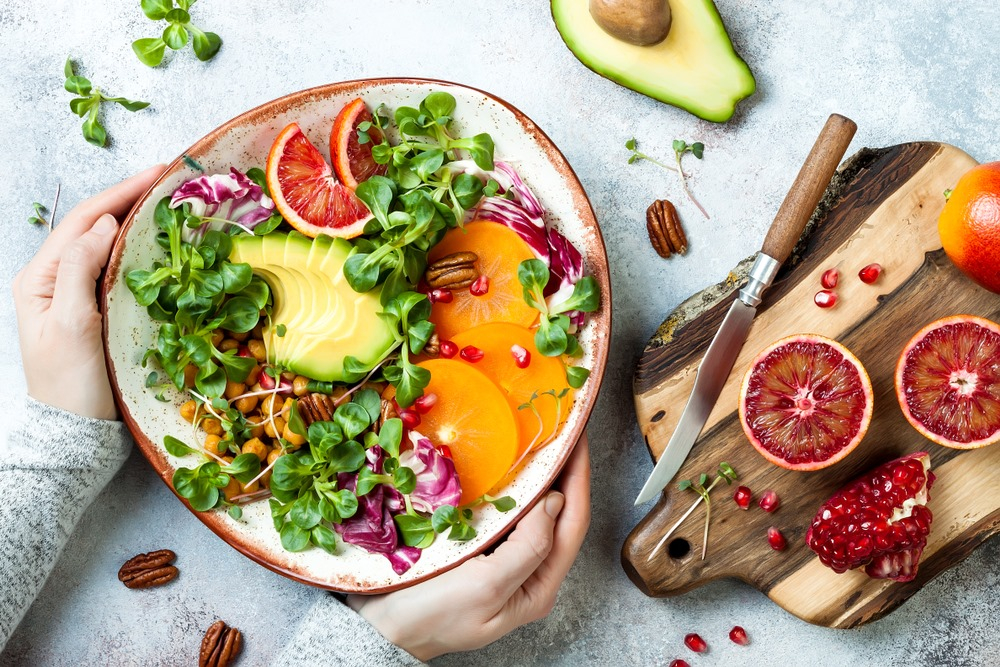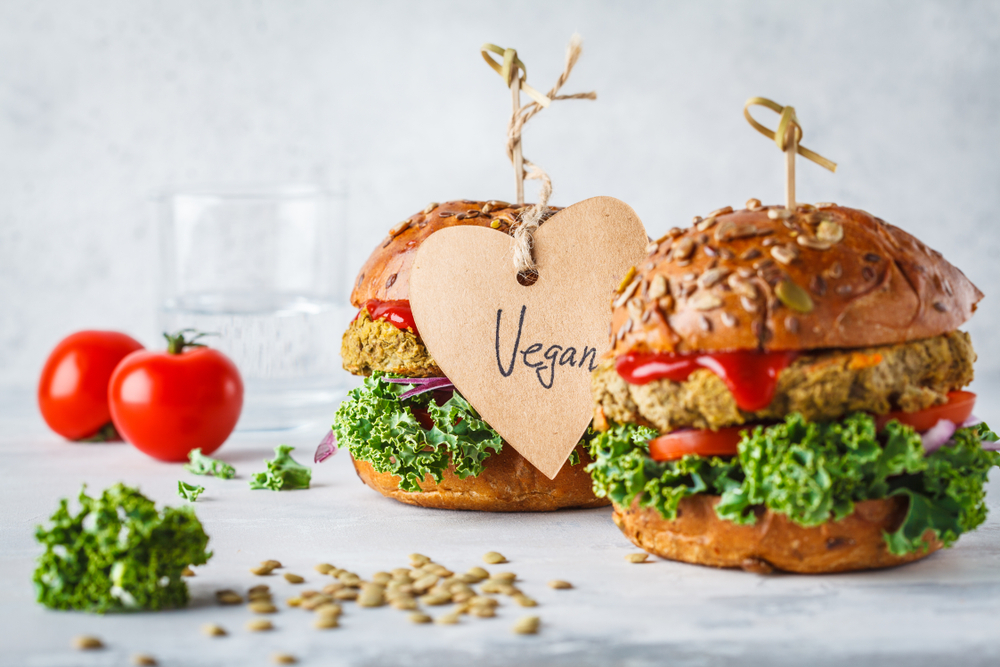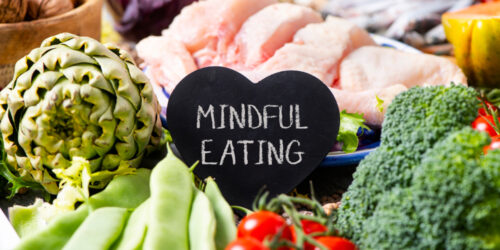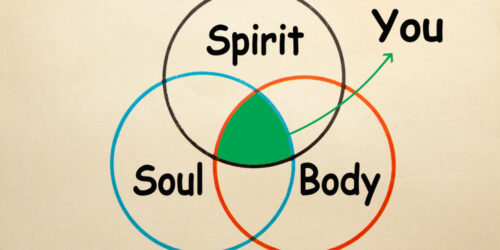Plant-Based Diet for Stress Management: A Holistic Perspective

Table of Contents
In today’s fast-paced world, stress has become a common affliction, affecting millions globally. The pursuit of holistic health solutions has led many to explore the benefits of a plant-based diet in managing stress. This article delves into the holistic perspective of using a plant-based diet to alleviate stress, offering valuable insights and practical tips for a balanced and harmonious lifestyle.
Understanding Stress and Its Impact

Let’s dive into the world of stress and see how it can really throw a wrench into our lives. Stress is like an unwelcome guest, but it has a sneaky way of showing up whether we like it or not. It starts in the brain and then can spread throughout our bodies, making us feel all sorts of bad. The science behind stress is pretty fascinating, actually – it’s our body’s natural response to challenges. But when it hangs around too long, it can wear us out, mentally and physically. So, handling stress isn’t just a nice thing to do; it’s a must for keeping ourselves in tip-top shape.
The Science of Stress
Stress might seem like just a feeling, but it’s actually a complex biological process. When we’re faced with a challenge or threat, our bodies kick into gear, releasing chemicals like adrenaline and cortisol. This is our built-in alarm system — our “fight or flight” response. It’s super helpful when we need a quick burst of energy, like when we’re running from a bear (or just late for the school bus).
But sometimes that alarm doesn’t switch off. Chronic stress can happen when the stressors in our lives keep coming non-stop. This can mess with our bodies in a bunch of ways. It’s like our engine is always running — and not in a good, ‘ready for anything’ kinda way, but in an ‘overheated, might-break-down’ kinda way. The trick is to find balance, and that’s where what we eat can really help out.
Effects of Stress on Body and Mind
Stress isn’t just a feeling; it’s a bodily response that can shake up both your physical and mental well-being. When you’re stressed, your body goes on high alert, releasing hormones like adrenaline and cortisol which prepare you to either face the challenge or run away—this is often called the “fight or flight” response. Over time, though, if you’re always in this high-alert state, it can wear out your body, leading to health problems like headaches, high blood pressure, and a weakened immune system.
Mentally, chronic stress can be just as taxing. It’s like carrying a heavy backpack that just keeps getting heavier—you can do it for a while, but eventually, it’ll wear you down. It can cause or aggravate mood disorders like anxiety and depression, make it hard to focus, and mess with your sleep. When your mind isn’t getting the rest it needs or is constantly in a state of tension, it’s a struggle to stay sharp and upbeat.
The Holistic Approach to Health

Embracing a holistic view of health means we’re not just looking at individual parts, like our physical body, but rather at the whole picture. This approach connects the dots between our body, mind, and spirit, recognizing that each aspect of our being influences the others. It’s like a puzzle, where all pieces come together to form a complete image of our health and well-being. By focusing on all parts of ourselves, we create a more balanced lifestyle that can better handle stress and bring us greater peace and happiness.
Connecting Body, Mind, and Spirit
When you think of a healthy lifestyle, do you picture just eating right and exercising? There’s actually more to it. Holistic health is all about the trio of your body, your mind, and your spirit. They’re like best friends that do everything together. If one isn’t feeling great, the others might feel off too.
Imagine your body is a garden. If you only water it but forget about the sunlight and the soil, will the plants be happy? Not really. In the same sense, nourishing your body with good food is key, but you’ve also got to take care of your thoughts and feelings. It’s like a special combo that can make a huge difference in how stressed out you feel.
The Role of Nutrition in Holistic Wellness
Eating isn’t just about satisfying hunger — it’s a cornerstone of our overall well-being. Holistic wellness recognizes this, seeing nutrition as a critical piece of the puzzle in maintaining our health. It’s not just the type of food we eat, but our relationship with food that shapes our body, mind, and spirit.
Foods packed with essential nutrients fuel our bodies and can also influence our mood and stress levels. By choosing to nurture ourselves with a variety of whole foods, mainly plant-based, we can help ensure our systems operate smoothly, and we feel our best inside and out.
Exploring Plant-Based Nutrition

Eating your greens is not just about keeping your body fit, it’s also about keeping your stress levels at bay. Imagine your meals as a palette of colorful veggies that not just tantalize your taste buds but also help you stay calm and collected. Let’s dive into how the vitamins, minerals, and fibers found in fruits, vegetables, nuts, and grains positively affect your mood and keep stress under control. With a treasure trove of nutrients just waiting to be explored, a plant-powered diet might just be the secret weapon you need in your battle against stress.
Essential Nutrients in a Plant-Based Diet
The Science of Nutrition
Good food means good fuel for our bodies, and when we’re talking about plant-based eating, it’s all about packing in those nutrients. One of the biggest power-ups in plants are vitamins, like vitamin C from oranges and broccoli, which help keep our immune system strong. Then there’s vitamin K found in leafy greens like spinach and kale, super important for blood clotting and strong bones.
Energy and Proteins
Another crucial part of the plant-based puzzle is carbohydrates. They’re the main energy source that keeps us going like the Energizer Bunny. Foods like quinoa, brown rice, and whole-grain breads are star players here. And let’s not forget about proteins; they’re the building blocks of our body. We can get proteins from lentils, beans, chickpeas, and tofu. These foods pack a punch, helping to build and repair tissues.
By focusing on these essentials, a plant-based menu becomes a powerhouse of nourishment. And hey, who knew plants could do so much?
The Impact of Plant-Based Foods on Stress Levels
Eating your greens might be more powerful than you think! When it comes to calming our nerves, what we eat plays a crucial role. Plant-based foods have a secret superpower: they’re packed with nutrients that are essentially stress busters. For example, magnesium, found in leafy greens like spinach, has a reputation for relaxing muscles and even easing headaches.
Speaking of feeling good, fruits like oranges and strawberries come loaded with vitamin C, which is known to lower your body’s cortisol levels. Cortisol is often called the ‘stress hormone’ because it’s produced when we’re feeling the pressure. By munching on these tasty treats, you’re not just satisfying your sweet tooth – you’re helping your body fight stress! Plus, the fiber in plant foods gives you a slow and steady stream of energy, stopping those mid-day slumps that can make anyone feel frazzled.
Integrating Mindfulness and Relaxation Techniques

Ever noticed how a peaceful mind can make everything seem brighter and lighter? Integrating mindfulness and relaxation techniques alongside a nutrient-rich diet can turbocharge your defences against stress. They’re like a powerful one-two punch for your well-being. When you pair a mindfulness practice with nourishing foods, you create an inner calm that can handle whatever life tosses your way. Let’s dive into how this dynamic duo helps to sweep the stress away and keeps your smile in place day after day.
The Power of Mind-Body Connection
Connecting your mind and body isn’t just a cool concept; it’s a powerful tool for reducing stress. Imagine your brain and your body are like best friends who support each other—when one’s in trouble, the other steps up to help out. Mindfulness techniques, such as meditation, can help strengthen this friendship.
By focusing on the present moment and being aware of your thoughts and feelings, you give your mind a break from stress. It’s like hitting the pause button on a busy day. Relaxation techniques, on the other hand, directly soothe your body – think of them as a cozy blanket for your nerves. Together, they make an unbeatable team to keep stress levels on the down-low.
Guided Meditation and Stress Reduction
When life gets too loud, guided meditation is like a mute button for the mind. It steers your thoughts away from the hustle and guides them towards a tranquil inner sanctuary. Picture someone with a calming voice leading you through peaceful landscapes, your worries melting away with each step you take in your mind’s eye. This practice does more than just quiet your thoughts; it strengthens your ability to manage stress daily.
By focusing on deep breathing and positive imagery, guided meditation resets your emotional state, coaxing your body into a state of relaxation and recovery. Think of it as a system reboot for your stress levels. Studies have shown that consistent use of this technique can lower anxiety, improve sleep, and even enhance overall mood. It’s like your personal stress-deflecting shield, and all you need to do is listen, breathe, and let go.
Practical Tips for Embracing a Plant-Based Lifestyle

Switching to a lifestyle rich in fruits, veggies, and whole grains can be a real game-changer for easing stress. Keeping it simple and fun is important. Let’s dive into some hands-on strategies to help you fill your plate with peace and plants!
Transitioning to Plant-Based Eating
Making a switch to eating more plants and fewer animal products can feel daunting at first, but it’s all about taking small steps. Begin by including one plant-based meal each day. This can be something as simple as oatmeal with fruits for breakfast or a hearty vegetable stir-fry for dinner. The key is to focus on adding to your diet, rather than just taking away.
Once you’re comfortable with one meal, try two. Over time, you can gradually increase the amount of plant-based foods until they make up most of your diet. Remember to be patient with yourself. Changing eating habits is a process that doesn’t happen overnight, but the benefits for your mind and mood are worth it.
Creating Balanced and Nourishing Meals
Creating meals that are both balanced and nourishing might seem challenging at first, especially when adopting a new eating strategy. However, the key to a satisfying plant-centered meal is variety – including a rainbow of fruits and veggies, whole grains, and plant proteins. Each meal should be an adventure for your taste buds while giving your body the nutrients it craves to conquer stress.
To make sure you’re getting a complete package of nutrition, remember to mix different plant foods. For instance, combining beans with rice completes a full protein profile. Don’t forget to add healthy fats, like avocados or nuts, which help your body absorb all those vital nutrients. The more colors on your plate, the wider range of vitamins and minerals you’ll be taking in – naturally equipping your body to stay calm and resilient in the hustle of everyday life.
Social and Environmental Impacts of Plant-Based Living

Choosing to live on greens and grains isn’t just a personal health choice; it’s like giving the planet a big hug! This isn’t just about trading steaks for kale. It’s a whole movement that has ripple effects on our social circles and Mother Earth herself. Embracing veggies over veal can help clear the air—literally—and foster a community vibe where caring for each other is as cool as caring for ourselves. Let’s dive into how munching on plant-powered meals can make the world a better place.
Promoting Sustainable and Ethical Practices
When you choose to fill your plate with greens, it’s not just your body that thanks you—Mother Earth does too. Eating plants isn’t only about keeping yourself healthy; it’s also about treading more lightly on the planet. That’s because plant-based eating often means less environmental strain compared to diets heavy in animal products.
Plant lovers are also planet lovers by default. Why? Because growing plants generally requires less water and land than raising animals. And there’s a big bonus: plants create fewer greenhouse gases. So every time you opt for a veggie burger over a beef one, you’re doing a solid for the skies above. It’s about making choices that are good for your health and the planet’s future.
The Influence of Community Engagement
Community engagement plays a crucial role when it comes to adopting new habits like eating more plants. Having support from friends or local groups can really boost your confidence and keep you on track. Being part of a community can help you discover new recipes, keep up with the latest nutritional information, and it just makes the journey more fun!
Engaging with others who share your goals creates a sense of camaraderie. You’re not alone in your quest for a healthier life! It’s awesome to share goals and celebrate each other’s wins, whether that’s trying a new veggie dish or feeling more chill because your stress levels are down. Plus, giving back to the community through activities like volunteering at a local garden can enrich your life in ways that go way beyond what’s on your plate.
Conclusion
Embracing a plant-based diet as a holistic approach to stress management offers not only physical nourishment but also emotional and spiritual sustenance. By centering on whole, nutrient-dense foods and holistic wellness practices, individuals can cultivate resilience and balance in the face of life’s challenges. The journey to stress management through a plant-based lifestyle is an invigorating path of self-discovery and well-being that harmonizes mind, body, and soul.
FAQs
- Does a plant-based diet help with stress?
- There is some evidence to suggest that a plant-based diet may help reduce stress. Plant-based diets are often rich in nutrients, antioxidants, and fiber, which can contribute to overall well-being. Additionally, some studies suggest that a diet high in fruits, vegetables, and whole grains may be associated with lower levels of stress.
- What is the best diet to reduce stress?
- The best diet to reduce stress varies from person to person, but generally, a balanced and nutritious diet is recommended. This includes a variety of fruits, vegetables, whole grains, lean proteins, and healthy fats. Avoiding excessive caffeine, sugar, and processed foods is also beneficial.
- Can a plant-based diet help mental health?
- Yes, some research suggests that a plant-based diet may have positive effects on mental health. Nutrient-dense plant foods contain compounds that can support brain health and may be associated with a lower risk of mental health issues. However, individual responses to diet can vary.
- What are 5 foods you should eat when you are stressed?
- Foods that may help alleviate stress include:
- Fatty fish rich in omega-3 fatty acids (e.g., salmon)
- Nuts and seeds (e.g., almonds, walnuts)
- Dark chocolate (in moderation)
- Fruits and vegetables high in antioxidants
- Whole grains (e.g., quinoa, brown rice)
- Foods that may help alleviate stress include:
- Which foods reduce cortisol?
- Some foods that may help regulate cortisol levels include:
- Dark chocolate
- Omega-3 fatty acids (found in fatty fish, flaxseeds, chia seeds)
- Foods high in vitamin C (e.g., citrus fruits, berries)
- Probiotics (found in yogurt, kefir, sauerkraut)
- Green tea
- Some foods that may help regulate cortisol levels include:
- Does milk reduce stress?
- Milk contains tryptophan, an amino acid that can contribute to the production of serotonin, a neurotransmitter associated with mood regulation. Additionally, warm milk may have a calming effect. However, individual responses to milk and dairy products can vary, and it’s essential to consider personal preferences and any potential intolerances or allergies.
Useful resources
- Plant-Based Diet and Stress:
- Best Diet to Reduce Stress:
- Plant-Based Diet and Mental Health:
- Foods to Eat When Stressed:
- Foods to Reduce Cortisol:
- Milk and Stress:








I was recommended this website by my cousin I am not sure whether this post is written by him as nobody else know such detailed about my trouble You are amazing Thanks
I have been browsing online more than three hours today yet I never found any interesting article like yours It is pretty worth enough for me In my view if all website owners and bloggers made good content as you did the internet will be a lot more useful than ever before
Thanks I have just been looking for information about this subject for a long time and yours is the best Ive discovered till now However what in regards to the bottom line Are you certain in regards to the supply
certainly like your website but you need to take a look at the spelling on quite a few of your posts Many of them are rife with spelling problems and I find it very troublesome to inform the reality nevertheless I will definitely come back again
Your article helped me a lot, is there any more related content? Thanks!